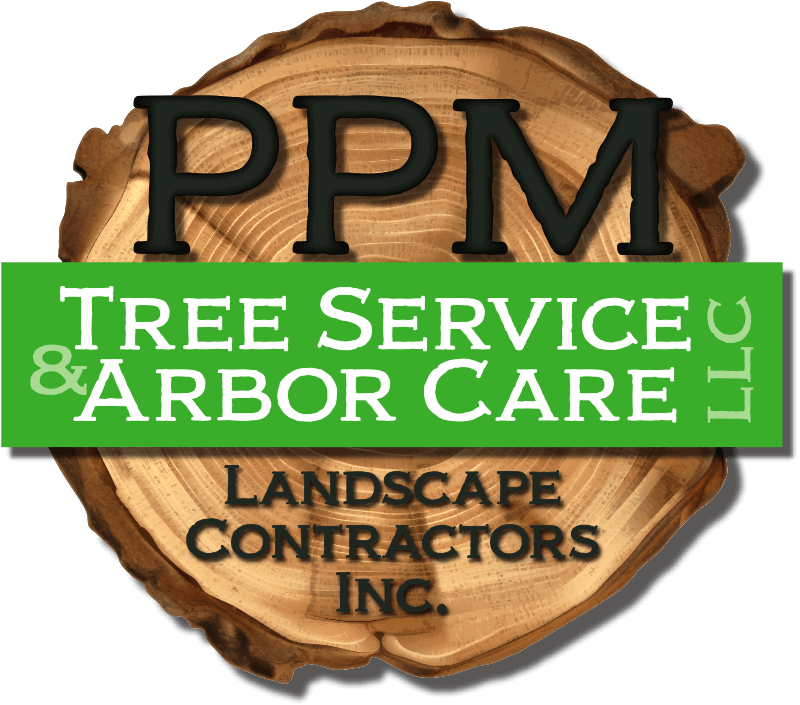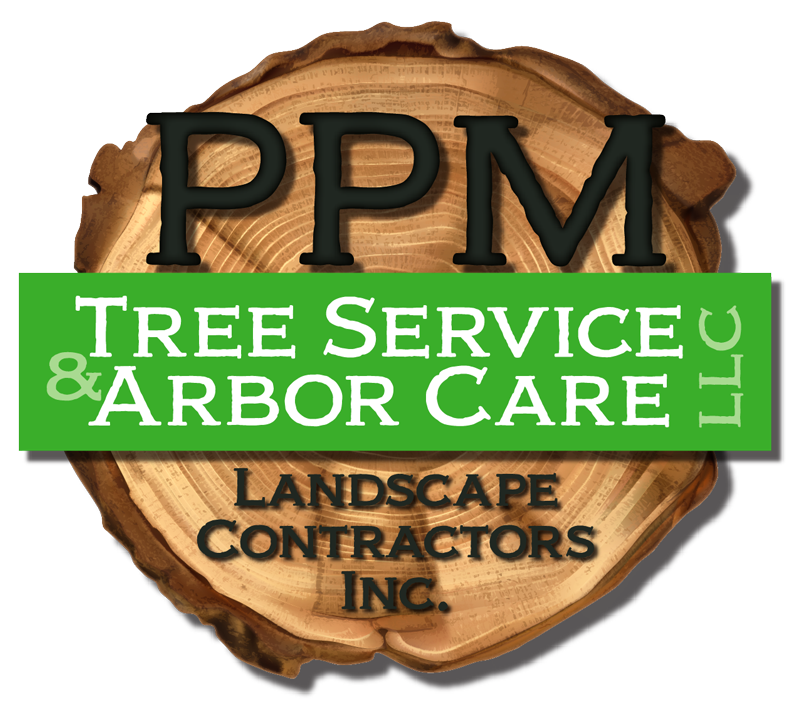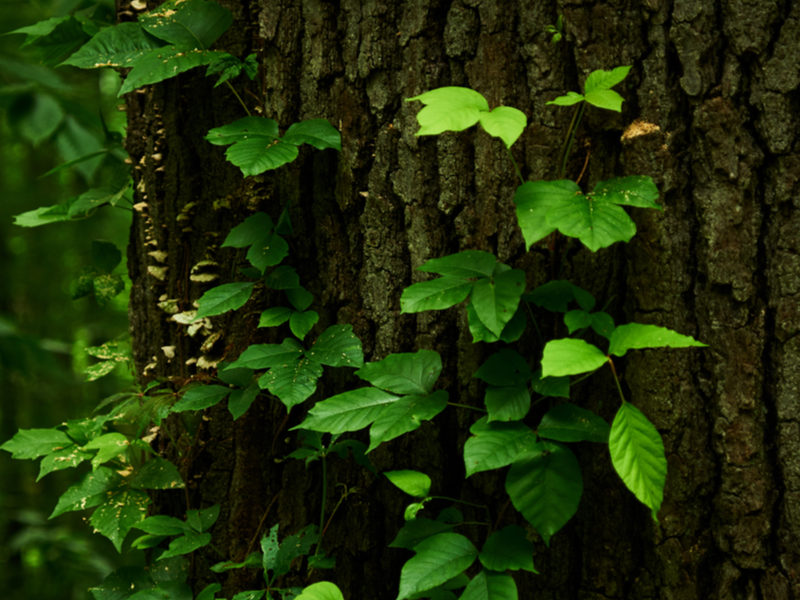What’s Growing on My Trees?
What The Heck is Growing on My Trees?
If you have ever taken a closer look at your trees, you will notice that sometimes there is more than bark growing on there. Your trees not only make homes for birds and insects but also other plants. Some of these plants are harmless, but some can cause serious damage if left to grow too large. Plants like vines can add extra weight to weak or dead limbs and cause them to break. Before you start cutting, slashing, and ripping plants off your trees, it’s crucial to know what it is before you touch it or you could be in for a world of hurt.
Virginia Creeper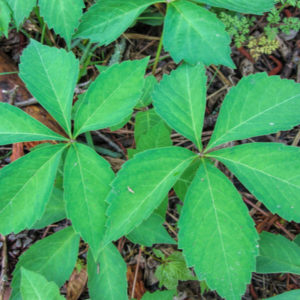
Virginia creeper is one of the most common types of vines you’ll find in the midwest and here in Michigan. This vine extends roots deep into the ground and can grow extremely fast. Virginia creeper can be identified by its five leaves that form a star shape. Clusters of tiny white flowers which turn to dark blue-black berries in the fall, which will attract wild birds. Virginia creeper is not poisonous and does not pose a threat to humans, but it can cover an entire tree and block out sunlight. The added weight on limbs can cause them to break, leaving your tree vulnerable to damaging tree pests. So keep a close eye on this vine, and don’t let it get out of control.
The best way to remove Virginia creeper is to find the main vine and clip it. This won’t kill the roots but will kill the plant. The next day you should notice the entire vine wilted. It is safe to let it die and fall off naturally or pull it down by hand.
Lichen
Lichen is often overlooked as a fungus or just a growth on the tree. Lichen is caused by cyanobacteria, an algae that have a symbiotic relationship with lichen. The algae provide energy via photosynthesis, while the lichen provides protection for the elements. While most fungi found on trees can cause harm to the plant, Lichen benefits trees by providing nutrients.
Moss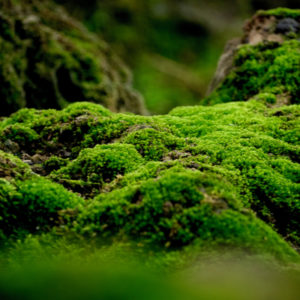
Moss is one of the oldest and primitive plants found on Earth. Unlike other plants, they do not rely on flowers or seeds for reproduction but instead, release spores. Moss likes to grow in damp, dark places and absorb nutrients, which is why you always find it growing on the north side of trees and rocks. On rocks and the ground, moss can reduce soil erosion and improve water retention. Mosses come in many different colors and textures, but they are almost never harmful to trees.
Poison Ivy
Poison ivy can be a vine or a shrub, but for this article, we will focus on the vine form. Poison ivy behaves much like Virginia creeper and can be confused for it to the untrained eye. Instead of five leaves, like Virginia creeper, poison ivy has three. Poison ivy also contains a chemical called urushiol that can cause severe, painful allergic reactions in humans when even lightly brushed up against. If you find poison ivy growing on your tree, do not attempt to remove it by hand. Instead, clip the main vine and let the plant die. If the plant begins to regrow, use an herbicide spray to kill it. Even after the vine has been dead for years, urushiol can still linger on the tree and vines, so use extreme caution.
Riverbank Grape
The riverbank grapevine is another common vine found in Michigan. Some people even cultivate this vine for its fruit, but it can be an extreme nuisance in the wild. It is usually found in overgrown areas and can grow thick and heavy. Over the years, vines can grow thick and hard and resemble the trunks of trees. These massive vines feed an enormous amount of smaller vines that could be girdling your trees or depriving them of sunlight. Grapevines have large leaves, and when their grapes start to grow, they can become very heavy, which can damage limbs. Damaged limbs can leave a tree vulnerable to pests and diseases.
Make PPM Your Trusted Tree Service
If you are looking to improve your landscape, call the tree care experts at PPM Tree Service and Arbor Care. Our tree care experts can plant trees and make sure they grow straight and healthy. We have years of experience pruning, cabling, and removing dangerous trees.
Give us a call at (877) 454-8733 or request a quote here. Hear about the latest news and offers from PPM by following us on Twitter and Facebook. Don’t forget to check out the monthly PPM Tree blog for all your tree care tips and tricks.
